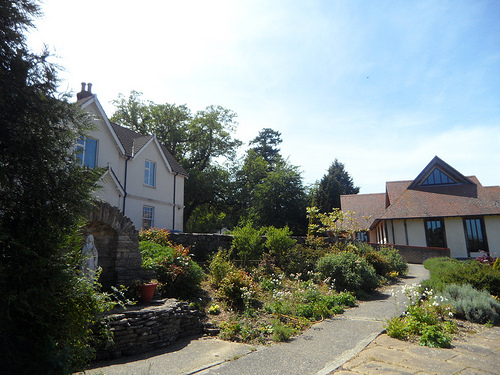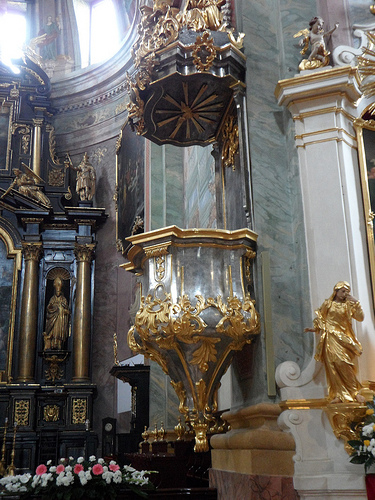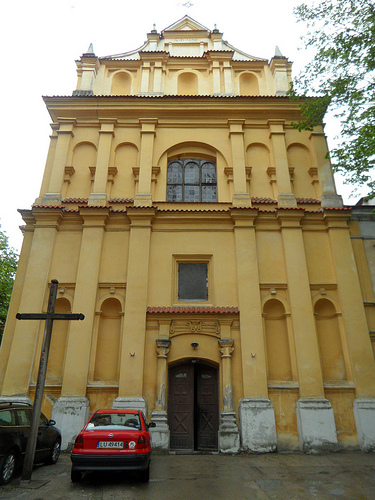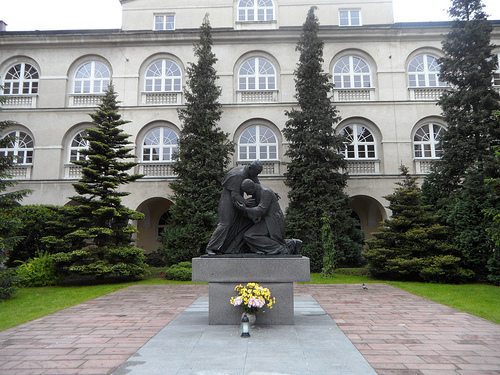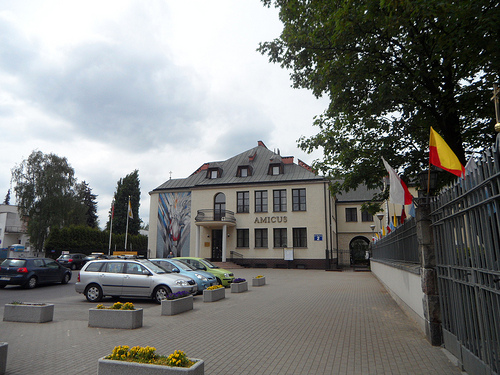Edmund had a wealth of resources to support marriage and the family. His presentation contained many gems - I was reminded of some things that I have posted here but also alerted to others. There was a quote from Brock Chisolm, the Director of the World Health Organisation in 1946, describing parents as dictators and oppressors, Harriet Harman et al on "The Family Way", quotes from Barry Sheerman at the time of the SORs about not being serious about the faith, and a reference to St Gregory who told Augustine to preach about marriage and its benefits to overcome lawlessness in his missionary territory of England.
There was an interesting reference to Mit Brennender Sorge (n.39) with its special greetings for Catholic parents:
[...] we shall never cease frankly to represent to the responsible authorities the iniquity of the pressure brought to bear on you and the duty of respecting the freedom of education. Yet do not forget this: none can free you from the responsibility God has placed on you over your children. None of your oppressors, who pretend to relieve you of your duties can answer for you to the eternal Judge, when he will ask: "Where are those I confided to you?" May every one of you be able to answer: "Of them whom thou hast given me, I have not lost any one" (John xviii. 9)Edmund also emphasised the "Elephant in the Room" which is pornography, especially addiction to internet pornography which makes the promotion of "fair love" particularly urgent.
After lunch, Peter Williams spoke to us on the political question of redefining marriage. Arguing with secularists and politicians, it is important to focus on the social damage that is done by redefining marriage.
Peter emphasised the point that Marriage is a social good and is therefore also a social act which involves the community and provides conditions in which children can best be brought up. For example, research from the Centre for Social Justice shows that children of married parents are less likely to engage in anti-social behaviour. One good point, following from Pope Benedict is that marriage is a fundamental part of our "social ecology" which is something that needs to be protected even more importantly than our physical ecology.
He encouraged us to point out that there is no discrimination involved in opposition to the redefinition of marriage: it is still true that anyone can get married, but there is simply no such thing as same-sex "marriage." It is not "banned" and cannot be "legalised."
It was good to meet the priests who came to this excellent day, and to enjoy the hospitality of Fr Alexander Sherbrooke and the young adults from the School of Evangelisation who made us so welcome. For the end of the day, adoration of the Blessed Sacrament and Benediction provided a peaceful oasis in the heart of London in the beautifully restored Church of St Patrick.

